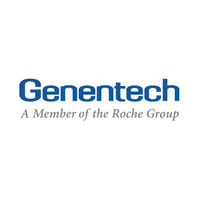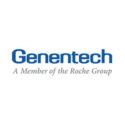
12 Dec Mosunetuzumab for Poor Prognosis Non-Hodgkin Lymphoma
MedicalResearch.com Interview with:

Priscilla White, spokesperson
Senior Manager, Corporate Relations
Genentech
MedicalResearch.com: What is the background for this study? What are the main findings?
- Response: Mosunetuzumab is a T-cell engaging bispecific antibody designed to target CD20-positive B-cell blood cancers, by binding to both CD20 (on the surface of B-cells) and CD3 (on the surface of T-cells).
- Analyses from the ongoing Phase I/Ib GO29781 study indicate that mosunetuzumab can produce durable responses in patients who have relapsed or who are refractory to prior treatment(s), including those who have relapsed or who are resistant to CAR T-cell therapy.
- Results from this dose-escalation study showed encouraging efficacy with an objective response rate (ORR) of 62.7 percent (n=42/67) in slow-growing Non-Hodgkin Lymphoma and 37.1 percent (n=46/124) in aggressive NHL across all dose levels assessed.
- Additionally, data demonstrated a complete response (CR) rate of 43.3 percent (n=29/67) in slow-growing NHL and 19.4 percent (n=24/124) in aggressive NHL. CRs showed durability, with 82.8 percent (n=24/29) of patients with slow-growing NHL remaining in remission up to 26 months off initial treatment and 70.8 percent (n=17/24) of patients with aggressive NHL, remaining in remission up to 16 months off initial treatment.
- Of the participants who received prior CAR T-cell therapy, the ORR was 38.9 percent (n=7/18), and 22.2 percent (n=4/18) achieved a CR.
- Adverse reactions included cytokine release syndrome (CRS) in 28.9 percent of patients with 20.0 percent at Grade 1 and 1.1 percent at Grade 3. Grade 3 neurological adverse events occurred in 3.7 percent of patients.
MedicalResearch.com: What should readers take away from your report?
Response: These early results are encouraging. Mosunetuzumab can produce durable responses in patients with relapsed or refractory Non-Hodgkin Lymphoma including those who have relapsed or who are resistant to CAR T-cell therapy, a patient population with limited treatment options
MedicalResearch.com: What recommendations do you have for future research as a result of this work?
Response: We will continue to analyze the data from the ongoing Phase I/Ib GO29781 study.
Citation: ASH 2019 abstract:
Mosunetuzumab Induces Complete Remissions in Poor Prognosis Non-Hodgkin Lymphoma Patients, Including Those Who Are Resistant to or Relapsing After Chimeric Antigen Receptor T-Cell (CAR-T) Therapies, and Is Active in Treatment through Multiple Lines
Sunday, December 8, 2019
Stephen J Schuster, MD1, Nancy L Bartlett, MD2*, Sarit Assouline, MD3, Sung-Soo Yoon, MD, PhD4, Francesc Bosch, MD, PhD5, Laurie H Sehn, MD6, Chan Y. Cheah7, Mazyar Shadman, MD, MPH8*, Gareth P Gregory, MBBS (Hons), PhD, FRACP, FRCPA9, Matthew Ku, MBBS, FRACP, FRCPA, PhD10*, Michael C Wei, MD, PhD11, Shen Yin, PhD11, Antonia Kwan, MD, PhD, MRCPCH11*, Kasra Yousefi, MSc12*, Genevive Hernandez, PhD11*, Chi-Chung Li, PhD11*, Carol O’Hear, MD, PhD11* and Lihua E Budde, MD, PhD13
[subscribe]
Last Modified: [last-modified]
The information on MedicalResearch.com is provided for educational purposes only, and is in no way intended to diagnose, cure, or treat any medical or other condition. Always seek the advice of your physician or other qualified health and ask your doctor any questions you may have regarding a medical condition. In addition to all other limitations and disclaimers in this agreement, service provider and its third party providers disclaim any liability or loss in connection with the content provided on this website.
Last Updated on December 12, 2019 by Marie Benz MD FAAD
